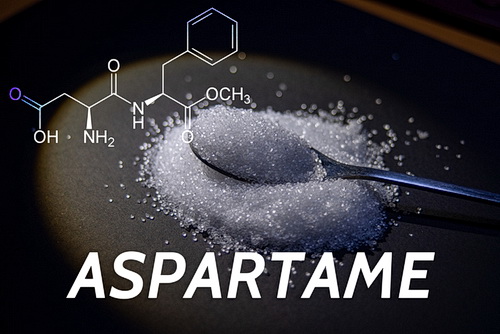
Overview
In our previous article on artificial sweeteners, we spoke about the pros and cons of numerous sweetening agents, including aspartame, but there have been many discussions and research on this sugar substitute and subsequently, we will dwell into the specifics of aspartame, its history, controversy and the details of this sugar substitute.
What is Aspartame?
It is a low-calorie sweetener that is used as a sugar substitute in numerous food and beverage products. This sweetener is known for its exceptional sweetness and studies have shown it is about 200 times sweeter than table sugar.
Aspartame is used in diet soft drinks, sugar-free desserts, chewing gum, tabletop sweeteners, and various low-calorie or reduced-sugar food items. It is a popular sugar substitute that, according to many reports, does not contribute to large increases in blood sugar levels, which benefits those with diabetes and others who are concerned about blood sugar levels.
A Bit of History

James M. Schlatter is the chemist known for discovering aspartame. Its ingredients contain a peptide (a short chain of amino acids), specifically aspartic acid and phenylalanine that are joined together. It is this combination of amino acids that contributes to its sweetness.
A Weight Loss Alternative to Sugar
Due to its intense sweetness, only a fraction of its calorie intake is required to achieve the same level of sweetness compared to other sweeteners.
Controversy
There have been claims about potential health effects associated with aspartame consumption, including links to cancer, headaches, and potential neurological disorders, but these claims have not been substantiated after many studies, consequently, regulatory agencies have reaffirmed the safety of aspartame when consumed within the recommended levels.
Results
As of July 2023, the Food & Drug Administration (FDA) approved the use of the sweetener in the United States. Aspartame has also been studied by the European Food Safety Authority (EFSA) and the World Health Organization (WHO) and these agencies have also concluded that the sweetener is safe when consumed within the acceptable daily intake (ADI) levels.
Safety Exceptions
As with any drug, prescribed or over the counter), some people may experience mild reactions to aspartame, such as headaches, digestive issues or other ailments; however, this is relatively rare and studies have shown that most people do not experience side effects. For the vast majority of the population, aspartame is considered safe when consumed within recommended limits.
Additionally, it should be noted that aspartame may not be suitable for individuals with a rare genetic disorder called phenylketonuria (PKU). PKU is characterized by the body’s inability to metabolize phenylalanine, which is one of the amino acids present in aspartame.
Those who have this disorder or other health conditions or are unsure if they should use aspartame may want to discuss with their medical professional if it is safe to consume.
Conclusion
Aspartame is an artificial sweetener that is used as a sugar substitute in various food and beverage products. It is composed of two amino acids, asprtic acid and phenylalanin.
It is a low-calorie alternative to sugar, which is appealing to people who are looking to manage their weight.
It has been evaluated by regulatory agencies around the world for years, and it is considered safe for most people when consumed within recommended limits. However, it is recommended that individuals with phenylketonuria should avoid aspartame due to its phenylalanine content. As with any food additive, it is essential to consume aspartame in moderation as part of a balanced diet and if you have any health conditions or concerns, it is always prudent to consult with your medical professional before consuming aspartame.
